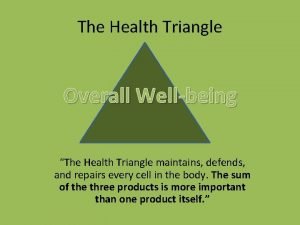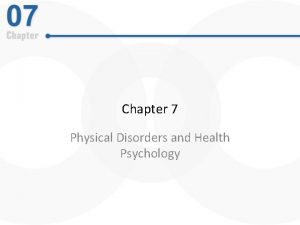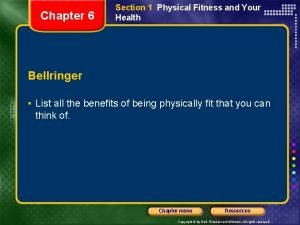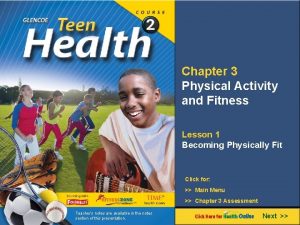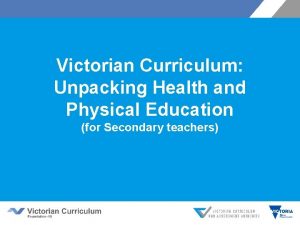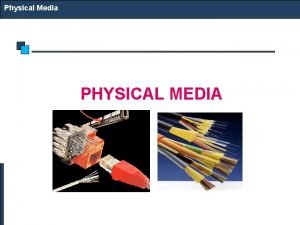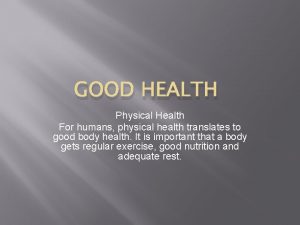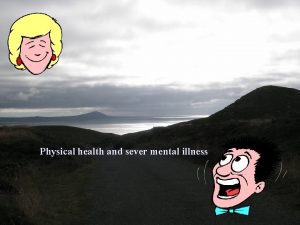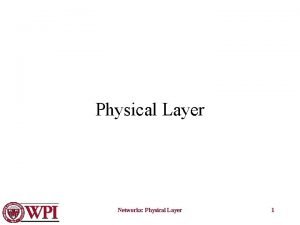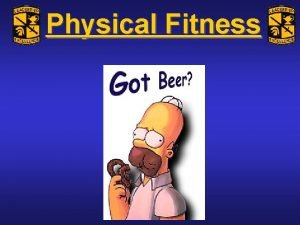Physical Health What is Physical Health Physical Health










- Slides: 10

Physical Health

What is Physical Health? • Physical Health: how well your body functions • Having a high level of physical health means having enough energy to perform your daily activities, deal with everyday stresses, and avoid injury. • You can improve your physical health by • Maintaining a healthy weight • Participating in Physical Activities • Avoiding Injuries

Being a Healthy Weight • Metabolism: the process through which your body breaks down food and converts it to energy. • Overweight: heavier than the standard weight for your range. • Underweight: below than the standard weight for your range.


Managing Your Weight • Here are some way your can manage your weight: • Set realistic goals. • Put your goals in writing • Evaluate your progress • Body Image is the way your see and view your body. • Positive or Negative Body Image • Body image can affect the way you treat your body.

Healthy Ways to Gain or Lose Weight • Healthy Ways to Lose Weight: • Watch Portion sizes • Be Active • Chose nutrient rich foods • Healthy Ways to Gain Weight: • Eat nutritious snacks • Select foods from the 5 food groups that are higher in calories • Get regular physical activity

Physical Activity • Physical Activity is any form of movement that causes your body to use energy. • Physical Activity is positive in every aspect of health: • Physically: promotes strength and physical health • Socially: You learn about how to be a teammate and to work with others. • Mentally: it relieves stress and helps you be in a better mood. • People who are not active are at risk for: • Weight gain • Type 2 diabetes • depression


Type of Physical Fitness • Cardiorespiratory Endurance: • the ability of your heart, lungs and blood vessels to send fuel and oxygen to your tissues during long periods of activity. • Muscular Strength: • the amount of force your muscles can exert. • Muscular Endurance: • the ability of your muscles to perform physical tasks over and over without tiring. • Flexibility: • moving your body parts through a full range of motion.

Staying Safe • Make sure your exercise starts with a warm-up and ends with a cool down • You have the right equipment • Watch the weather. • Rest if you have an injury
 Rate fences services marketing
Rate fences services marketing Physical fitness test grade 9
Physical fitness test grade 9 Hpe curriculum vic
Hpe curriculum vic Health triangle project examples
Health triangle project examples Global strategy on diet physical activity and health
Global strategy on diet physical activity and health Meaning of health education
Meaning of health education Physical disorders and health psychology
Physical disorders and health psychology Section physical fitness and your health
Section physical fitness and your health Fitness chapter 1
Fitness chapter 1 Victorian curriculum physical education
Victorian curriculum physical education Health triangle
Health triangle



